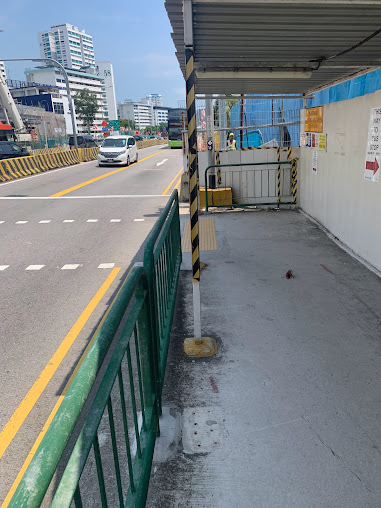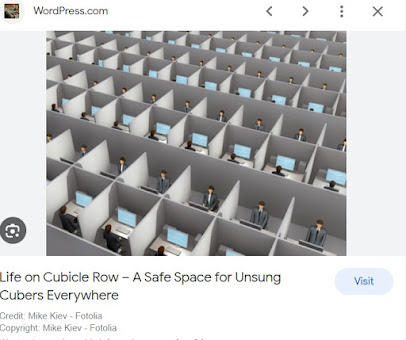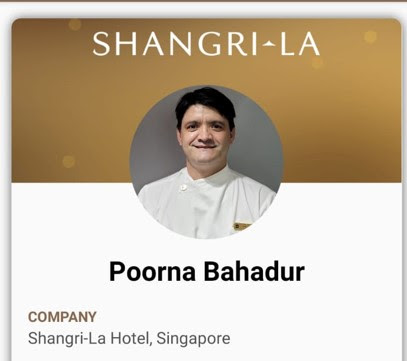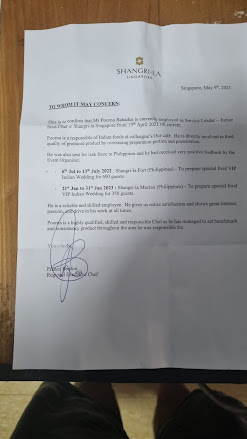OK, it wasn’t my idea (since I had just flown in from
Singapore) but since my American stepdad was hungry for Malaysian and
Singaporean food, we decided to go grab a mean at the C&R Café and
Restaurant, which is located in London’s Chinatown.
In the three years of being in university in London, I
avoided going for Singapore food for a simple reason. I didn’t see a great need
to pay several pounds for a dish that I could get back home for a third of the
price (this being back when the exchange rate was three Singapore dollars to
the pound and six Malaysian ringgit for the pound.)
However, my experience at C&R today got me
questioning one of the issues that many of us face today, which is the issue of
moving to different places. Like it or not, we live in a world where many of
the opportunities that are available to us, are quite often in different parts
of the world. Staying in the home market is more often than not a limiting
factor to career growth, especially if you work for a multinational. Key
buzzwords for career building are “multinational,” and “multicultural.”
However, despite all the chatter about the need to be “multi”
this and that, many people, particularly in Asia, are hesitant to move abroad,
even if its for a few years. One of my father’s friends who was a
Vice-President at Citibank in the 1990s made the point that although he
probably could get a “multinational” job, he wasn’t going to do it because he’d
have no idea when he would get to come home.
So, here’s the question – what defines home?
Governments around the world love telling you that the country you were born in
is your home. To an extent they are not wrong. Chances are, the place where you
were born is the place where you’ve lived in the longest. It’s the place where
your family and school friends happen to be. It’s the place where the sights,
sounds and smells are familiar to you and therefore comfortable.
The question that is put to many people when they think
of locating elsewhere is why do you want to leave a place which is so familiar
and comfortable. In culinary terms for Malaysians and Singaporeans is “Why do you
want to go to a place where you can’t get your laksa?”
The experience at C&R today, however, showed that many
of the experiences of “home” can, in fact be replicated elsewhere. C&R’s
story is about that. The place was started by someone from Johor who got homesick
for home food. So, the restaurant was formed to create the flavours of home for
Malaysians and Singaporean living in London.
Sure, prices are not what they are in Malaysia or
Singapore. However, you can’t expect someone operating in London to sell at
Malaysian and Singaporean prices when they’re operating in London.
However, what you can get is that little flavour of
home and if you look at the what C&R is offering, you’ll notice that its
fairly extensive (my stepsister made the point that she had never seen a menu
with so many pages).
Moving to another place does require compromise. I
lived in the UK for seven-years at a boarding school. At no time, did I ever
insist on getting Chinese New Year as an official Public Holiday. My right to
celebrate privately was respected (which involved enough time to go to a public
phone to call relatives) but the compromise was that I could not even think of
imposing a public holiday on the majority.
However, as long as you are willing to compromise on
certain things in the public sphere, you can always recreate many of the
elements of “home” elsewhere. Food is one of the best examples. We can enjoy
the flavours of home wherever we are and we can share the beauty of our culture
with other people.
The Westerners have done it for years. They have travelled
overseas and brought their flavours of home with them. The Westerners have brought
“flavours of home” with them rather than allowing the “concept of home” from
stopping them from chasing opportunities beyond their shores – so why can’t we
do the same?



















